The Tandem of the Millennium – Shaping Memory
Saint John Paul II and Cardinal Wyszyński
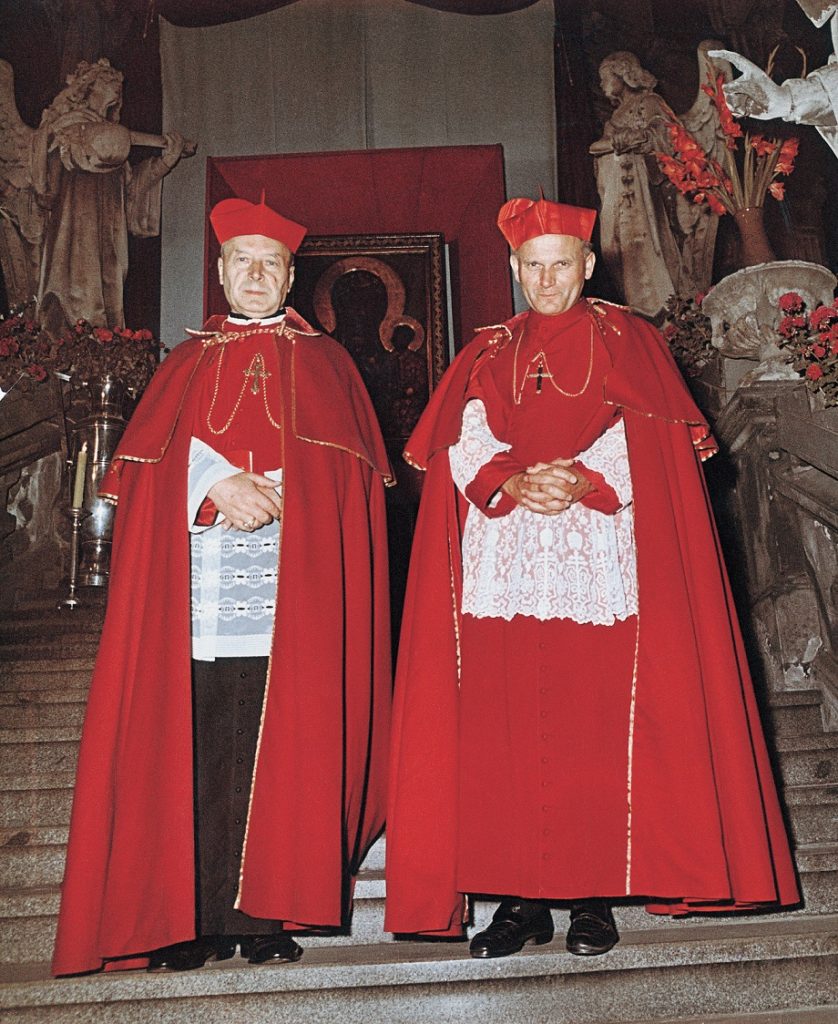
Poles see two great figures of the Church as the tandem of the millennium. They recall the scene of a Pole created Pope.
A full to the brim St. Peter’s square on 22nd October 1978. Holy Mass for the newly elected pope’s inauguration of his pontificate. Curiosity with a mixture of sensations – a pope from a distant country, a Pole, the first non-Italian on the throne of Peter for 455 years. What will it be like? What will he do? – Walls and iron curtains are falling. An unknown Europe, lying somewhere in the East, out of reach, begins to be filled with information.
In the traditional devotion to the Holy Father, Cardinal Wyszyński falls to his knees, but John Paul II kisses his hand. A day later, in a smaller group, during an audience for Poles, the Pontiff is quoted to have said: “This Polish Pope would not be present in the See of Peter, who today, full of the fear of God, but also full of trust, begins a new pontificate. If it were not for your faith, which would not dwindle in the face of imprisonment and suffering, your heroic hope, your complete entrustment to the Mother of the Church, if Jasna Góra were not there – and the whole period of the history of the Church in our Homeland, which is related to your episcopal and primate ministry ”.
They were a harmonious tandem. Wyszyński – the primate of Poland – being a generation older – already had experience in managing the Church. Wojtyła – Archbishop of Krakow – learned quickly and was loyal. A close associate of the Primate mentions that after being created cardinal by Archbishop Wojtyła, Cdl. Wyszyński said that from that moment they would be like two horses pulling the cart of the Church. They were unique personalities, but they were united by their life experiences – they were both raised by their fathers, who, after their mothers’ death, completely devoted themselves to the Mother of God. As priests and bishops, despite the difficulties and harassment on the part of the communist authorities, they evangelized tirelessly and with a passion, remembering the good of all their compatriots, and the entire nation. Together they walked the bumpy road until the famous words sounded that: There would never be a Polish Pope in the See of Peter …
In 1983, during the second pilgrimage to Poland, the Pope thanked God’s Providence “for the fact that in the difficult period of our history, after the Second World War, at the turn of the first and second Millennium. By that providence, we were given this Primate, this Man of God, this Lover of the Mother of God of Jasna Góra, this fearless servant of the Church and our Homeland ”.
The Pontiff also united in suffering with Cardinal Wyszyński, on the 13th of May 1981, when John Paul II was wounded in an attack. Then the Primate asked his compatriots not to pray for him in his ill health, but for the wounded Pope, who was then in the Gemelli polyclinic.
The last conversation of these two great Poles took place on 25th May 1981. The Primate was already sure that John Paul II would survive, and thus told him that he was kissing his hands, and John Paul II replied that he was kissing the cardinal’s feet. And they said that Our Lady is with them.
How were Cardinal Wyszyński and John Paul II remembered? Is the memory of them alive at all, or maybe it all just comes down to cream cakes?
Aneta Liberacka, the president of Media Foundation 7 and publisher of the Stacja 7 (Station 7) portal, which decided to resume the biography of Cardinal Wyszyński “The Father of Free People” by Paweł Zuchniewicz states in an interview with Family News that young Poles do not know the Primate of the Millennium or know very little about him. Hence the idea to reprint the book and it must be emphasized that it was a good decision – the edition is almost out of print. It is very important how you reach out to the young recipient. – Basic facts from his life should be communicated. When we show that you can learn from him how to live, pray, work, he becomes a guide and an authority figure.
The President of the Foundation was positively surprised when following the proposal that the recipients of Station 7 asked questions related to Cardinal Wyszyński received as many as four hundred applications. The editorial office did not expect such a big response, and the recipients asked about developing such qualities as patience, persistence, planning, time management, and vocations to marriage. This is what they are to learn from the cardinal who was beatified in September. Not all the questions were strictly confessional and showed that when you go out to the youth, they react and are interested in the figure of the Primate because he can teach you many important things.
For adult recipients, however, it is a kind of coach, a trainer who teaches not only how to work, but also shows what qualities in a person are shaped by work. Work is not only a means of earning a living but also shapes the character, it always sculpts something in a person, e.g. patience and humility, and thanks to this you can see its new meaning.
The portal Station7 has also prepared ready-made handouts for teachers about Cdl. Wyszyński, in which they will be able to learn what values, sanctity, and freedom are. There are also quizzes and a card game to bring this unique Pole closer.
Andrzej Arseniuk, the press spokesman of the John Paul II and Cardinal Wyszyński Museum, speaks about the growing interest in the figure of the Primate of the Millennium. In his opinion, it is connected with the September beatification of Cdl. Wyszyński and after the stagnation associated with the pandemic, more and more schools volunteer to visit the museum in organized groups. Whether the Patrons will be present in the consciousness of the next generation of Poles will be determined by time and modern presentation of the Pope and of the Primate, the organization of workshops, and familiarization with their message.
When asked whether his compatriots associate John Paul II only with cream cakes, the deputy director of the Museum, Grzegorz Polak, reacts with a certain impatience. The museum is dedicated to preserving the memory of the greatest Poles in history, but in his opinion, it must be done skillfully. The easiest way is to “dress” Pope John Paul II in confessional robes, but in this way, he will not reach a wider group. It should be shown that John Paul II addressed his message to all people, not only to believers.
Grzegorz Polak gives an example – the pilgrimage of the Holy Father to his homeland in 1991, after the fall of communism. The Pope then dedicated his sermons to the Decalogue and addressed his word to everyone. In the Decalogue, the first three are confessional, the rest apply to everyone without exception. The message of John Paul II was not focused on the commandments but was positive, it showed that the commandment was to persuade people to work on themselves, showing their positive aspect. For example, in the fourth commandment, “Honour your mother and father” – live so that you deserve the respect of your children. The fifth commandment is “Do not kill”, but also respect and protect life. He spoke about abortion and appealed to parish and church communities to help pregnant women. In subsequent commandments, for example, the eighth “You will not tell lies”, he entered the realm of the media, he said that the word should connect. In everything, he pointed to current but eternal problems – families, human rights, and freedoms.
The deputy director of the Museum informs us that a team of its employees entered the public domain with posters, billboards, advertisements on buses, and workshops for various age groups were organized, in which family, friendship, and responsibility are discussed. – The methods of reaching out are important in order to convey values to the young generation. The best way to get there is by telling, for example, how John Paul II visited a family in an African cottage or the Milewski family on Lake Wigierskie. The important thing is to lead by example, there too will be a time for reading the books – emphasizes Grzegorz Polak.
He points out that you can still learn from these great Poles. Their correspondence has just come out. One can learn respect for each person and dialogue with everyone, even the most ideologically distant. They respectfully wrote about the communists, their opponents.
– We have a treasure at our fingertips, we must draw from it and teach how to pass on their great achievements – says Grzegorz Polak.
Family News Service
Related
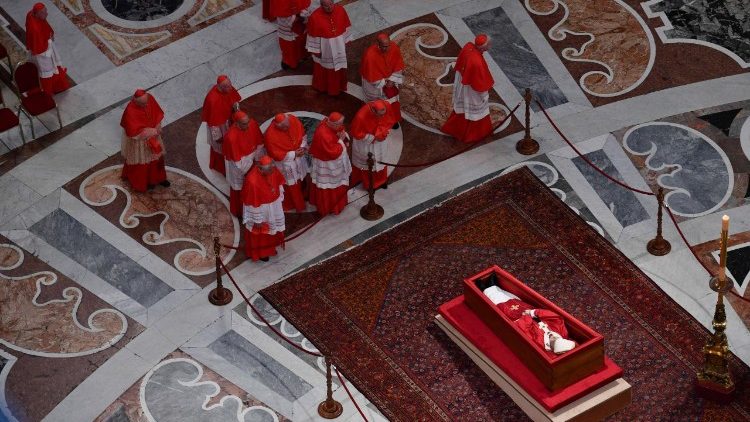
“We have experienced a brilliant pontificate that has touched the hearts of believers and non-believers alike”
Exaudi Staff
23 April, 2025
6 min
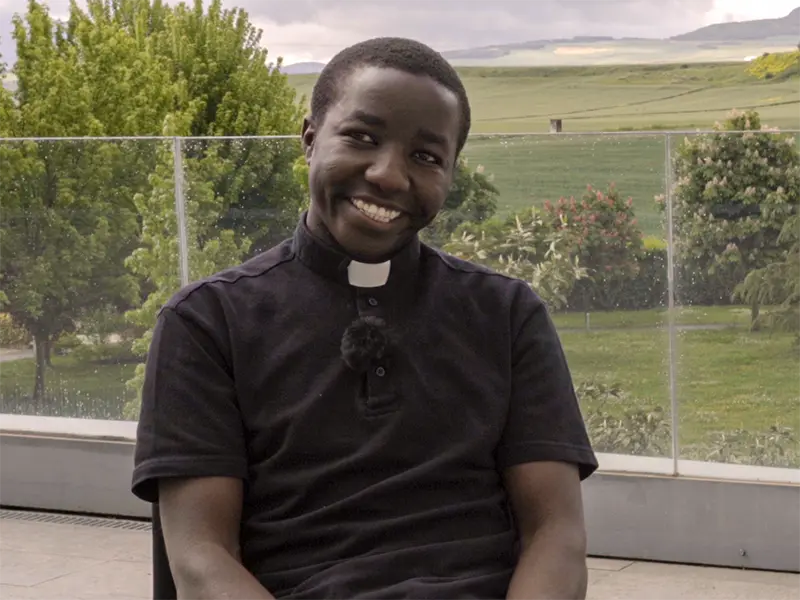
“Being Catholic in Tanzania is a source of pride”
Fundación CARF
16 April, 2025
6 min
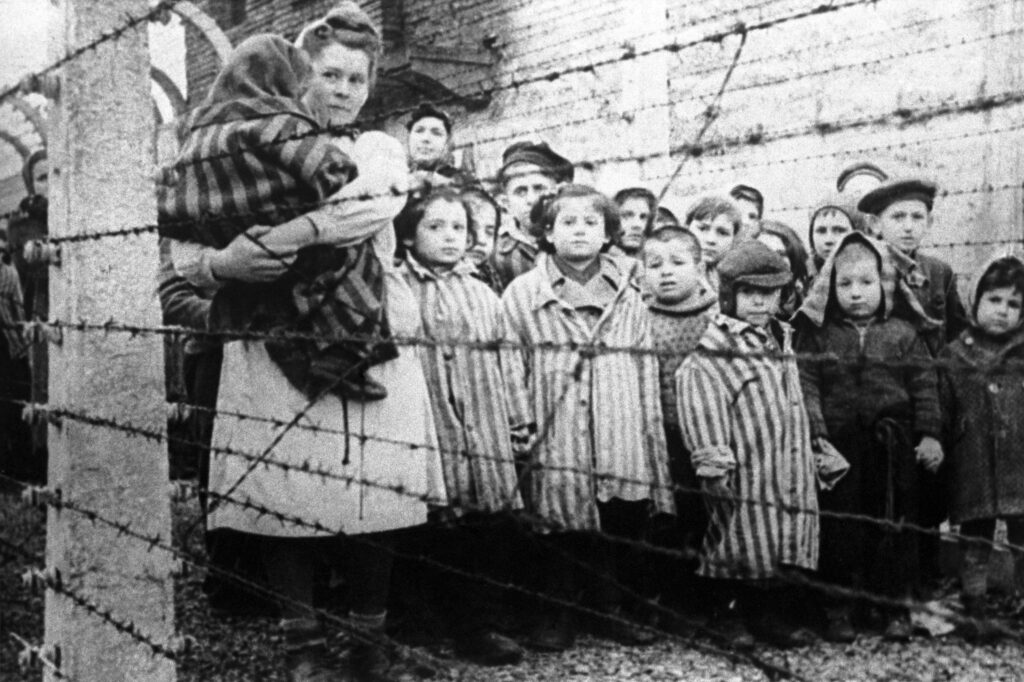
“I Will Never Be Herod for the Innocents”
Wlodzimierz Redzioch
14 April, 2025
6 min
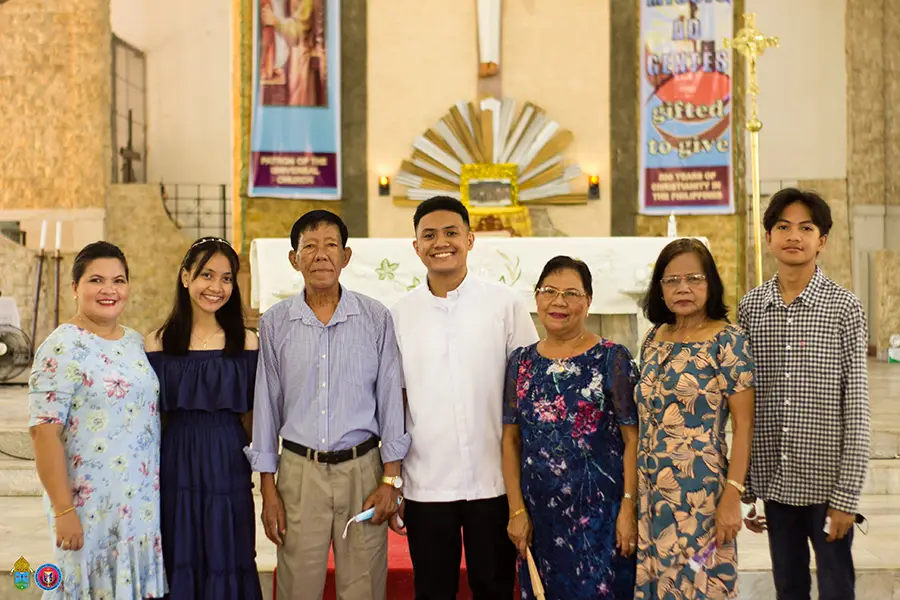
“Spain must preserve the faith it once transmitted to us”
Fundación CARF
07 April, 2025
7 min
 (EN)
(EN)
 (ES)
(ES)
 (IT)
(IT)

